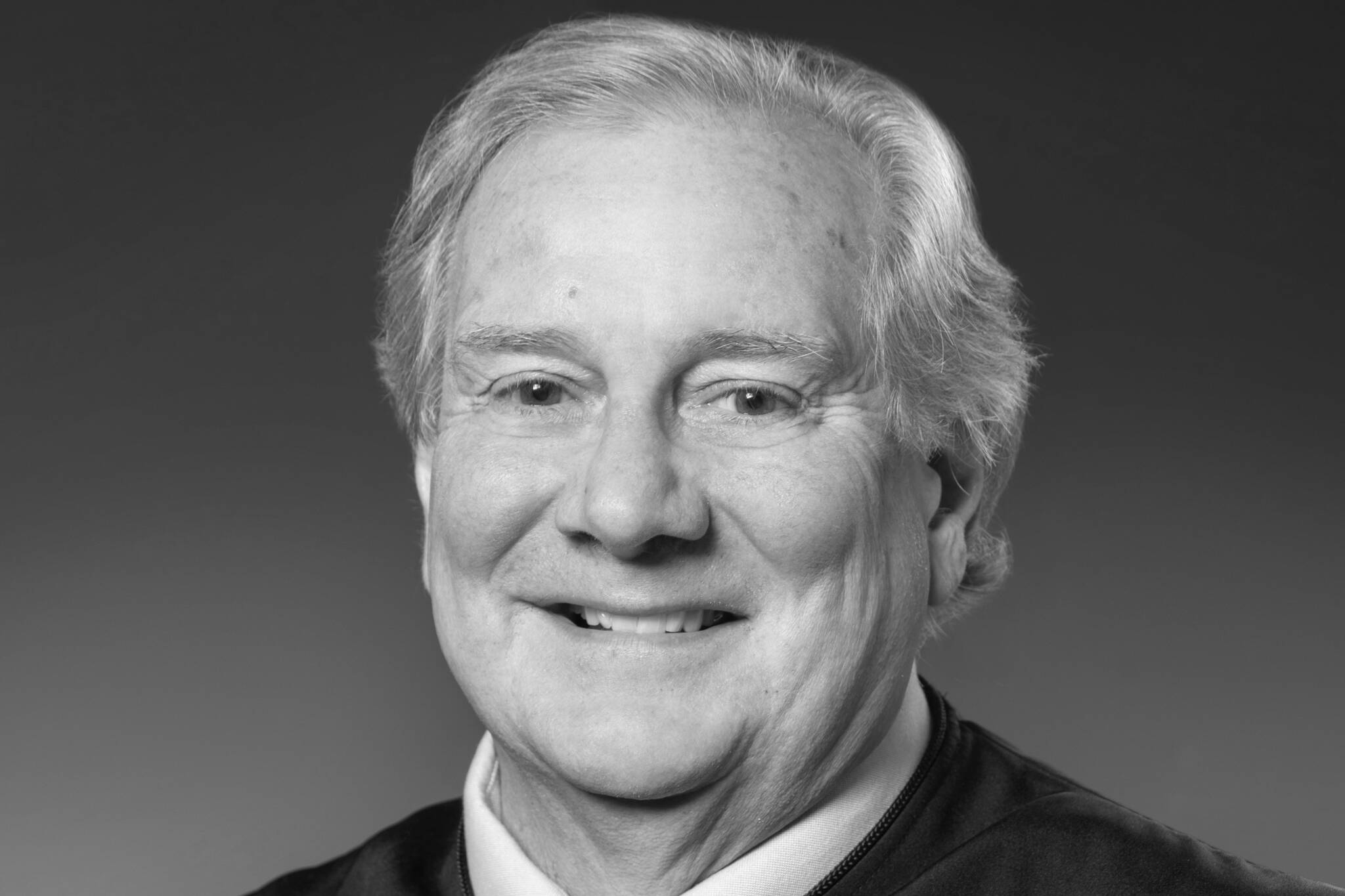Chief Justice of the Alaska Supreme Court Daniel Winfree is the first Alaska-born person to hold that position, and it comes after a long legal career in the state.
After 25 years in private practice, Winfree was appointed to the Alaska Supreme Court in 2008. He served as president of the Alaska Bar Association and as chair of its ethics committee.
Winfree, who was born in Fairbanks, in the Alaska Territory, told the Empire in an interview Thursday that he followed his older brothers, whom he looked up to, into the legal profession. He initially thought he wanted to go into business with a legal background, he said, but once he enrolled in a joint business and law degree program at U.C. Berkeley, he knew he wanted to focus on law.
Speaking to the Empire by videoconference, Winfree emphasized the dedication judges have to impartiality and that they try their best not to let politics impact their decision-making. Members of the court do their best to look at the facts of the case, Winfree said, and try to rule according to the written law, not politics or the popular will.
“Courts aren’t supposed to reflect the will of the people,” Winfree said. “We don’t decide cases based on political demographics or what the majority wants us to say the U.S. Constitution of the Alaska Constitution says.”
Some Alaska Republicans have criticized the state’s judicial selection process, saying the process is too tightly controlled by the Alaska Judicial Council and the Alaska Bar Association. Some Republican lawmakers have introduced legislation to change the selection process laid out in the state’s constitution. Rep. Chris Kurka, R-Wasilla, introduced a bill in April for a constitutional amendment that would have Supreme Court Justices selected by voters every four years in a general election.
[City extends COVID mitigation measures, restores fines for violations]
Earlier this year, Gov. Mike Dunleavy asked the Judicial Council for a new slate of nominations after his preferred candidate wasn’t selected. Winfree was selected following the retirement of former Chief Justice Joel Bolger, who retired earlier this year. The Alaska Constitution does provide periodic public votes to retain justices and requires they retire at age 70.
The framers of the Alaska State Constitution specifically didn’t want elected judges, according to Winfree, who said at the time there were several scandals involving elected judges in the U.S. Winfree called changing the state’s judicial selection process a bad idea, and said advocates for the change would have to make a strong argument for changing what the founders purposefully enshrined in the state constitution.
“Can you imagine what it would be like if I had to go out and get campaign money,” Winfree said. “How do you sit on cases when people have given you money for your elections?”
Winfree said the court goes to great lengths to be transparent, and that court proceedings are televised and rulings made available to the public. He encouraged people to read the court’s decisions and listen to arguments before deciding a ruling is politically driven.
“I recognize that we’re not going to please everybody at any time, at least half of the people involved are going to be upset,” Winfree said. “We take the facts of each case and decide on its merits.”
Winfree will make his first State of the Judiciary address to the Alaska State Legislature in February.
Contact reporter Peter Segall at psegall@juneauempire.com. Follow him on Twitter at @SegallJnuEmpire.

